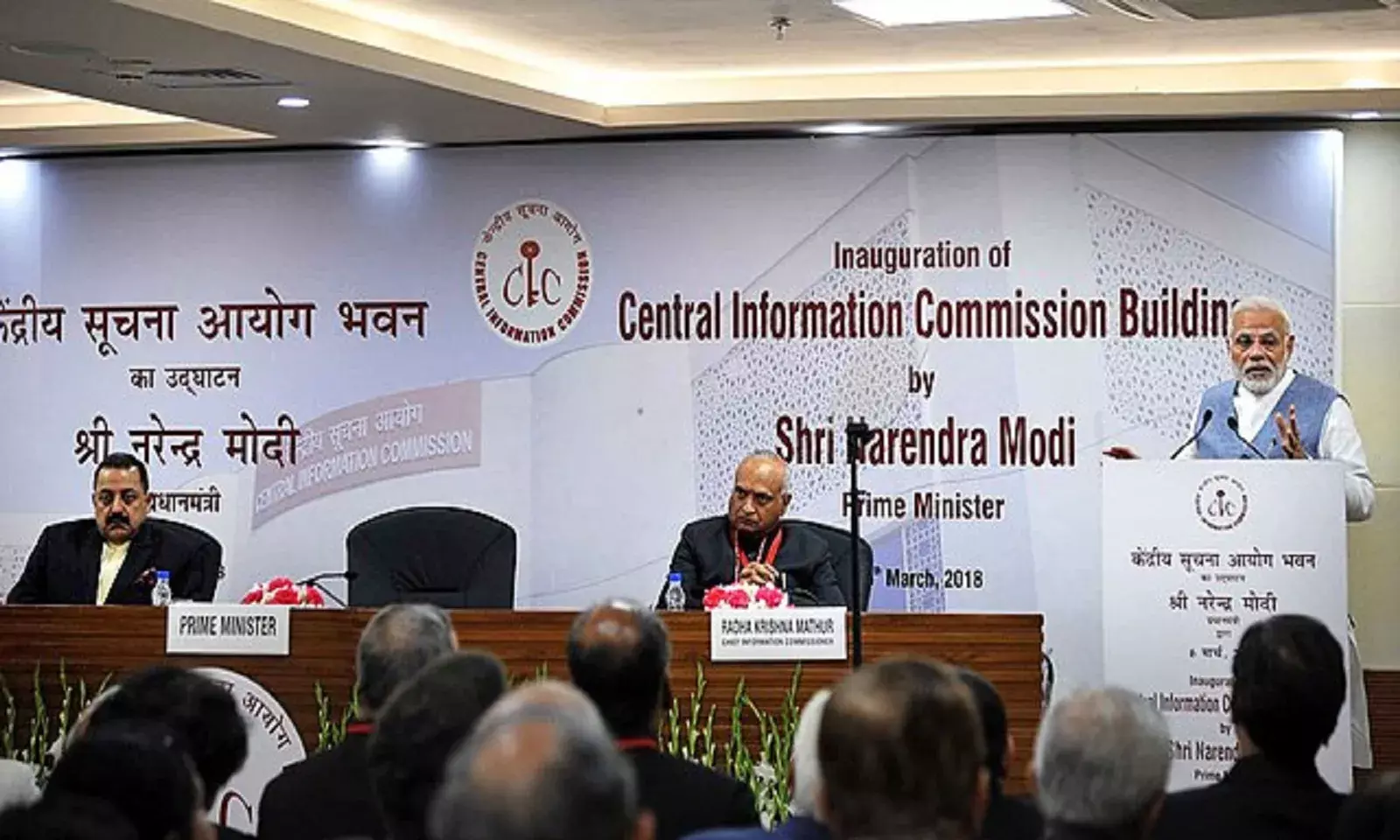Lack of leadership, accountability cause RTI plea pile-up, say experts
FactChecker spoke to experts to find out why the unaddressed RTI queries are rising every year

Source: Wikimedia Commons
The number of (Right to Information) RTI applications that go unaddressed and remain pending with various departments rose by 33% between 2016-17 and 2019-2020, according to the Central Information Commission's (CIC) Annual Report released recently.
The number of such piled up RTI requests stood at 35,178 (out of 1.68 lakh applications filed) in 2019-2020 and 26,449 (out of 1.12 lakh applications filed) in 2016-17. Till April 7, 2021, according to the CIC portal, the total number of RTI requests pending stood at 38,142.
FactChecker spoke to experts and tried contacting CIC officials to look beyond the numbers and delve deep into why these requests are piling up. Here are some of the responses we got:
Lack of leadership
Delay in appointment of information commissioners could be a factor for RTI requests going unanswered.
"Since 2014 not a single Information Commissioner has been appointed in CIC without being nudged by the courts, be it the Supreme Court or the Delhi High Court. The backlog is so high that the commission needs to extend their working days by at least half a day on Saturdays," Commodore Lokesh Batra, an RTI activist, told FactChecker.
Activists and experts believe the pile up signifies more than just a systemic failure. "It is a lack of political will to make the commission function transparently since it unveils corruption. This also violates people's right to know. If there are no commissioners the commission cannot perform the role of a watch dog for the government to give out information," said Anjali Bharadwaj, Co-convenor, National Campaign for People's Right to Information.
No accountability
The Central Information Commission, the central appellate body for the RTI Act, decided on a minimum performance norm for its commissioners in March 2011. The norm was that each bench should handle and dispose of 3,200 cases every year. But there isn't any accountability if a certain commissioner fails to do that.
"Commissions need to impose penalties since it gives a cue that violation of the norm shall not be tolerated. But since penalties are not imposed the public information officers do not feel accountable to give out information. So, when the PIOs do not give a proper response, people approach the commission. This results in increase in number of cases sent to the commission," added Bharadwaj.
Seconding her, Venkatesh Nayak, Program Head, Access to Information Programme, Commonwealth Human Rights Initiative, an international non-profit, said, "The CIC is not even bothered about the backlog of RTIs that are reported by the public authorities at the start of the reporting year."
Transparency, a mirage
RTI activists say they have to file queries for information that should already be in the public domain. "The government is not implementing Section 4 of the RTI Act under which a lot of information needs to be provided proactively. People are forced to file RTI applications for information that they need to be given anyway," Bharadwaj told FactChecker.
The Ministry of Home Affairs (MHA) has the largest share of RTI rejections (20.46%) in 2019-20, followed by the Ministry of Finance with 12.48% rejections. MHA has topped this list in 2018-19 and 2017-18 too with 16.41% and 15.16% rejections, respectively.
The highest number of requests rejected — 38.73% — are in the 'others' category. In fact, applications rejected under this category have seen a 5-percentage point increase since 2018-19 – 33.25% in 2018-19 and 38.73% in 2019-20.
"The Prime Minister, on the 10th anniversary of the RTI Act, suggested that RTIs be analyzed to ensure if they could be proactively made accessible to people. The increasing number of RTI rejections and the high number of RTI queries for the Ministry of Defence must be analyzed. But neither of this is happening," concluded Nayak.


